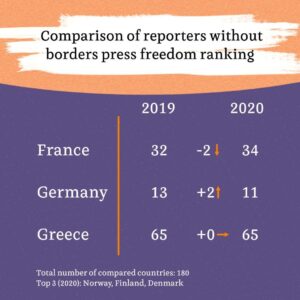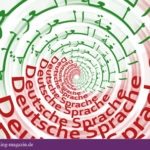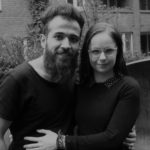When Moria, Europe’s largest refugee camp was destroyed, Greek police imposed restrictions to the journalists reporting on the situation with over 9,000 asylum seekers. They presented the restrictions as temporary; but they are still in effect.
Protection of the press or restriction of press freedom?
On February 2, Reporters Without Borders (RSF) published a report . It was a warning that the just implied national guidelines for policing demonstrations “are likely to restrict the media’s reporting and access to information”. And it called “the Greek authorities to review the guidelines in consultation with representatives of the country’s journalists”, which had been absent from the draft of them. What was the case? Based on a presidential decree, a few days earlier the Greek Police had presented the new manual for its operational tactics during demonstrations. According to this, journalists covering protests would now have to work from an area specified by the authorities.
While concerns for their safety were cited as the official reason, journalists across the country questioned the true motives seeing an effort to control information. Marios Lolos, former head of the photo-journalists union, said that “in 99% of the cases the attacks towards us have been by the Police themselves”. Although this might be a new measure, critics have seen in the past one and a half years that New Democracy is in power in an effort to restrict coverage on crucial issues, in many cases. One of them has been the reception of the asylum seekers arriving in the country.
Limiting access to Lesvos island
On September 8th, multiple fires raised down Moria camp, Europe’s largest and most infamous camp until that moment. In the following days, a large number of reporters representing different publications from around the world were present in Lesvos island. They reported from the coastal road in which more than 9,000 asylum seekers had been sleeping rough. Progressively, after the first days, the Police started barring journalists from entering in the area in which people on the move were restricted. While the official explanation provided was that an operation was underway, it was later proved that this was not a case.
In at least one incident, a journalist, Iason Athanasiadis, who was on the island on assignment from the German daily Die Welt, was prosecuted. And in other cases journalists spotted on the area were made to leave by officers without uniform. Multiple journalists highlighted these practices among them Katy Fallon (reporting from English-speaking media), Marina Rafenberg (correspondent of French media) — and six press freedom organizations, besides RSF: the International Press Institute (IPI), the European Federation of Journalists (EFJ), the European Centre for Press and Media Freedom (ECMPF), the Free Press Unlimited (FPU), the Osservatorio Balcani e Caucaso Transeuropa (OBCT), and Article 19.
Further restricted access
As Solomon reported, a month after the fire access to the new camp was still restricted, with the authorities citing COVID-19 or personal data protection as a reason for responding negatively to media inquiries. On a move that might bring memories to the aforementioned practice for the protests, a spot just in front of the gate of the new facility, which has been built next to the sea, was preserved for the journalists. But, as journalists were expected to report just from outside of the large facility, government-friendly media like the state agency AMNA (Athens Macedonian News Agency) were allowed inside, escorting ministry officials during their visits.
An unfriendly environment in the Aegean islands
As of February 4, 6.824 asylum seekers live in the new temporary facility substituting Moria camp. A total of 4.474 more people are living in the four other Aegean islands (Leros, Kos, Samos, Chios), a big number of which in equally dire conditions, and exposed to cold, rain, and wind. Likewise Lesvos, reporting on issues related to these conditions remains largely restricted. Furthermore, in 2020 different cases were reported. On October 19, a German documentary crew was arbitrarily arrested in Samos. A couple of weeks later three German freelance reporters were detained without charge for several hours by the Hellenic Coastguard in Lesvos. As the Greek government has been citing safety concerns related to COVID-19 to limit media access to refugee camps, the camps’ populations have also been living in a constantly expanding lockdown with their access out of it limited since a year.
Asylum seekers‘ documentation
This has resulted in asylum seekers documenting themselves the conditions in which they live into; from teenage girl Parwana Amiri, in Ritsona camp in the Greek mainland, to Twitter accounts broadcasting the results of flooded tents in the new camp in Lesvos, in a different number of cases. Just a few weeks before publication of this article, 50 pictures from camps were shared widely on social media, based on disturbing photos taken by residents themselves as media access to them remains limited.
Greece is ranked 65th out of 180 countries in RSF’s 2020 World Press Freedom Index.

This cross-border collaboration by Guiti News (France), Kohero (Germany) and Solomon (Greece) – three independent medias working on migration – delves into a worrying and escalating trend of police violence during the previous year; not only against people on the move, but against the media professionals documenting their issues as well.
From the infamous ‘jungle’ of Calais to the evacuation of makeshift camps in the center of Paris, and from the “Black lives matter” demonstrations in different German cities to the destruction of the continent’s largest refugee camp, on the Greek island of Lesvos, cases of police oppression across Europe were condemned by press freedom organizations like the Reporters Without Borders.
The other articles can be found here:
- Griechenland – auf Deutsch und auf Englisch
- Frankreich – auf Deutsch und auf Englisch
- Deutschland – auf Englisch und auf Deutsch
Project coordination: Anna Heudorfer







2 Antworten